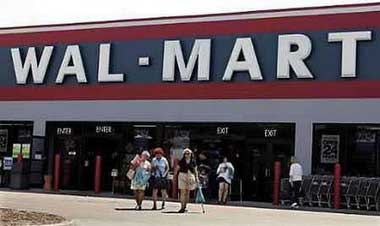|
Wal-Mart to double China outlets to 90
(Agencies)
Updated: 2005-07-25 13:49
Wal-Mart Stores Inc., the world's biggest retailer, plans to more than double
its outlets in China and run 90 stores by the end of 2006, a senior executive
said Monday, as it fights to expand market share.

Shoppers exit a
Wal-Mart store in Casselberry, Florida June 22, 2004 in this file photo.
Wal-Mart is one of the US retailers shifting from China to India for
clothing and other inexpensive goods supply.
[Reuters] |
Wal-Mart, like rivals Carrefour
S.A. and Metro A.G., has been building stores throughout China -- Asia's largest
retail market -- at a rapid clip, taking advantage of growing incomes and a
gradually liberalizing retail industry.
Lawrence Lee, regional operations director for eastern China, told Reuters
later that the Arkansas-based U.S. giant expected to post double-digit revenue
growth in China in 2005, though he declined to give specifics.
According to China's commerce ministry, Wal-Mart posted a 31 percent leap in
sales in the country to 7.6 billion yuan ($940 million) in 2004.
Lee added that Wal-Mart did not intend for now to take advantage of new
freedoms for foreign players, after a requirement that they find a local partner
was abolished in late 2004.
"We expect double-digit growth this year but we have no plans to go solo so
far, because our local partner knows the market better," Lee told Reuters after
a news conference.
Wal-Mart will operate 55 stores in China by the end of this year, versus 43
at the end of last year. But that's still a fraction of the roughly 5,000 the
retailer has worldwide.
Carrefour lags Wal-Mart globally but leads in China. The French retailer has
said it planned to open 15 hypermarkets a year.
Hypermarkets stocking everything from personal computers to bicycles and pet
food are still a relative novel concept to much of China, but slick foreign
outlets are fast springing up across the country alongside booming growth.
Wal-Mart intends to launch its first store in Shanghai on Thursday. It had
previously steered clear of China's commercial hub and richest city, the
country's most saturated and intensely competitive retail
market.
|